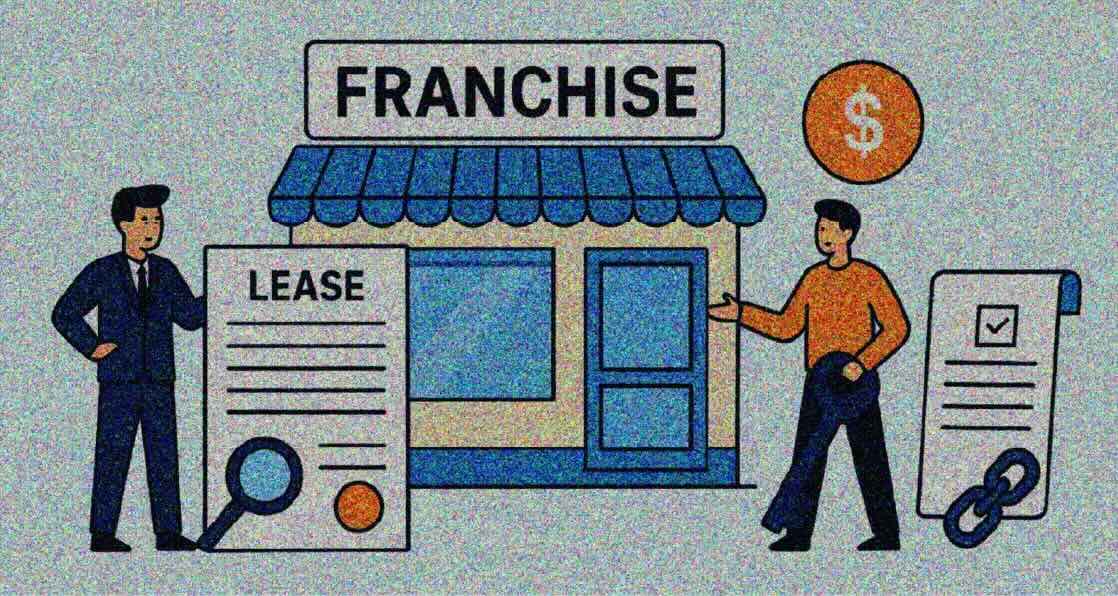Lorem ipsum dolor sit amet, consectetur adipiscing elit. Suspendisse varius enim in eros elementum tristique. Duis cursus, mi quis viverra ornare, eros dolor interdum nulla, ut commodo diam libero vitae erat. Aenean faucibus nibh et justo cursus id rutrum lorem imperdiet. Nunc ut sem vitae risus tristique posuere.
Your Choices About Your Information
First-Time Franchisees
Existing Franchisees
Multi-Unit Developers
Lease Negotiation Tips to Strengthen Your Franchise's Financial Foundation

Lease Negotiation Tips to Strengthen Your Franchise's Financial Foundation
Negotiating your lease is more than a box to check—it’s a foundational step that can influence your franchise’s profitability and long-term success. From securing a location that aligns with your operational needs to managing capital for expansion, favorable lease terms can set the stage for growth. At ApplePie Capital, we work with both franchisees and franchisors to help structure financial solutions that support sustainable scaling—including navigating real estate decisions with a lender’s lens.
Here are some essential tips to guide your lease negotiation process:
1. Define Your Franchise’s Operational Needs
Start by outlining your franchise’s must-haves—square footage, drive-thru access, signage visibility, or proximity to anchor businesses. This clarity helps you negotiate with purpose and avoid properties that add unnecessary build-out or overhead expenses. “Defining your true space needs upfront saves both time and money,” says Travis Perrine, Director of Business Development at ApplePie Capital. “It’s about matching the location to your unit economics, not just chasing the lowest rent.”
2. Conduct Market and Competitive Research
Gather data on local lease rates, vacancy trends, and what comparable franchise brands are paying. This knowledge gives you leverage, especially when requesting concessions or pushing back on escalations. Your franchisor may have internal teams or preferred brokers to help gather this intel—don’t hesitate to ask.“Franchisees often overlook the resources their franchisor can offer here. A strong brand will usually support you with comps, site criteria, and negotiation guidance,” says Travis
3A. Leasehold Improvements
Franchises often require customized layouts to meet brand standards. Build-out costs can vary widely based on the existing condition of the space and local construction rates. Try to negotiate a Tenant Improvement (TI) Allowance, but remember—it’s not free money. “If the landlord offers $100,000 in TI, they’re likely recovering that through higher rent. Always do the math on the total cost of occupancy,” Travis advises.
3B. Furniture, Fixtures & Equipment (FF&E)
Items like kitchen equipment, POS systems, lighting, and signage can be major line items. Know which are your responsibilities and what, if anything, can be rolled into your financing or requested as part of your lease.
4. Consider More Than Rent
While base rent gets most of the attention, other clauses can have an equal or greater financial impact:
- Rent escalations – negotiate caps or fixed increases
- CAM fees – clarify what’s included and if they’re controllable
- Personal guarantees – explore limiting or removing them if your brand has strong financials
- Exclusivity – protect your concept from direct competitors in the same center
5. Ask for Concessions—Early and Often
Free rent, extended build-out periods, or phased rent increases can be valuable when launching a new location. Make these asks early in the negotiation before the landlord has multiple suitors.
6. Lock In Favorable Renewal Terms
Don’t wait until the end of your lease to think about renewal. Secure extension rights now, ideally with predictable rent terms. You may also want a Right of First Refusal on adjacent spaces, especially if your brand plans multi-unit growth in the market.
7. Bring in Professionals
Real estate brokers, franchise-specialized attorneys, and lenders familiar with franchise growth can save you money and headache. These experts spot red flags, help benchmark terms, and ensure alignment with your financing strategy.
8. Be Strategic—But Stay Flexible
Know your walk-away points, but be prepared to compromise on non-essential terms. For instance, a slightly longer initial term in exchange for TI dollars or rent abatement might be a smart trade-off depending on your capital structure. “The lease isn’t just a real estate document—it’s a financial tool,” says Travis. “It directly impacts cash flow, EBITDA, and your ability to qualify for future funding. Franchisees who approach it strategically often have a smoother path to growth.”
Franchise leasing decisions have long-tail consequences, and the negotiation table is where your investment return starts taking shape. Aligning your lease terms with your brand’s operational model and financing plan is crucial. At ApplePie Capital, we help franchisees and franchisors structure growth-friendly financing—and that often begins with a well-negotiated lease.



RELATED POSTS
Navigate challenges with ease









